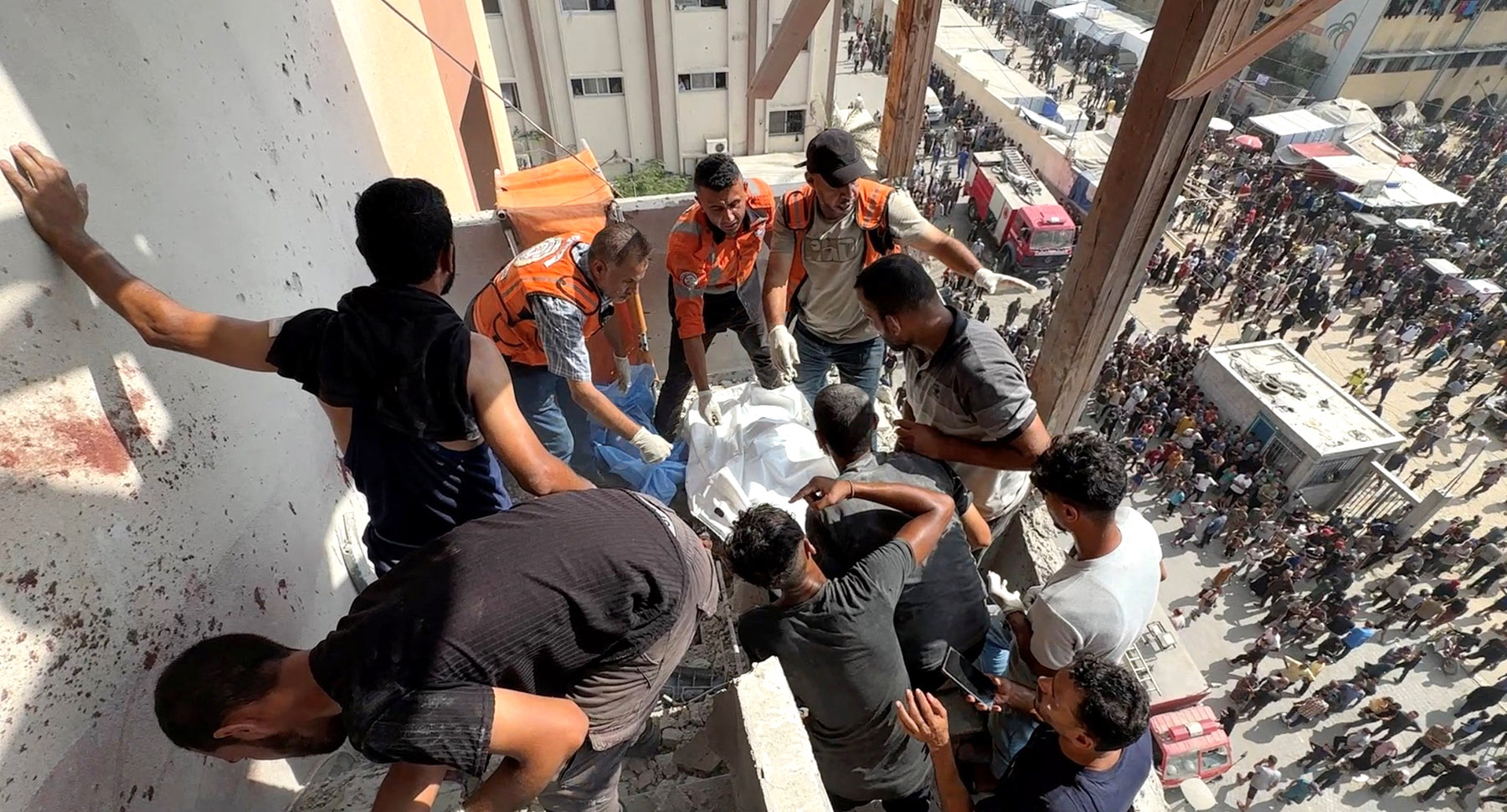5 journalists among 21 killed in twin attacks as Israel 'regrets tragic mishap'

Israel drew condemnation from across the globe over the deadly strikes that have targeted both hospitals and media professionals in Gaza, with at least 21 people, including five journalists, killed in an Israeli double-tap attack on the last partly-running hospital in southern Gaza. Many countries have called for thorough investigation into the strikes.
Effie Defrin, an Israeli military spokesman, said the army does not target civilians and had launched an internal investigation into the strikes. He accused Hamas of hiding among civilians but did not say whether Israel believed any militants were present during the strikes on the hospital.
Israeli Prime Minister Benjamin Netanyahu said "Israel deeply regrets the tragic mishap" at Nasser Hospital in Khan Younis, adding the military was investigating, while Reuters, The Associated Press and Al Jazeera issued statements mourning their slain contributors.
READ MORE: At least 20, including 5 reporters, killed in Israeli attack on Gaza hospital
China, "shocked" by the strike, "condemns the fact that medical personnel and journalists have once again unfortunately lost their lives in the conflict", Foreign Ministry spokesman Guo Jiakun said in Beijing on Tuesday.
"China is highly concerned about the current situation in Gaza," he said. "Israel should immediately stop its military operations in Gaza, achieve a comprehensive and lasting ceasefire as soon as possible, fully restore the entry of humanitarian supplies, prevent a larger-scale humanitarian crisis and work to ease tensions as quickly as possible."
United Nations Secretary-General Antonio Guterres earlier strongly condemned the killings and called for a prompt, impartial investigation, his spokesman Stephane Dujarric said on Monday.
The conflict, which began in October 2023, has devastated Gaza. Israel does not permit foreign journalists into the enclave, but local reporters continue to provide coverage. According to Gaza health officials, at least 273 journalists and a total of 62,744 people have been killed since then.
In the West Bank, the Palestinian presidency urged the international community, particularly the UN Security Council and other UN bodies, to provide protection for journalists and hold Israel accountable.
The Palestinian Journalists Syndicate said Israel's strikes represented "an open war against free media, with the aim of terrorizing journalists and preventing them from fulfilling their professional duty of exposing its crimes to the world".
Crippling aid blockade
Nasser Hospital is the last remaining partially functional hospital in southern Gaza amid a crippling aid blockade. Palestinian security sources reported that Israeli warplanes targeted the hospital with at least one missile, followed by a second attack as medical crews arrived to retrieve the dead and wounded.
Arab League Secretary-General Ahmed Aboul Gheit called the attack "just one episode in a relentless series of massacres deliberately targeting civilians". Egypt labeled it a "new episode in a long series of blatant Israeli violations of international humanitarian law".
Other countries, including the United Kingdom, France, Germany, Canada, Switzerland, Turkiye, Qatar, Saudi Arabia and Kuwait, condemned the strike, calling it "unacceptable" or "intolerable" and urging an investigation.
When asked about the strike, US President Donald Trump initially said he was not aware of it before offering, "I'm not happy about it. I don't want to see it." He claimed the fighting would end "within the next two to three weeks", without specifying.
US Senator Jeanne Shaheen, said, "I personally am appalled by the bombing in Gaza and by the killing of journalists, and think it needs to end now."
ALSO READ: Civil defense: At least 50 Palestinians killed by Israeli army in Gaza
It came as Israel widens its offensive in the heavily populated areas and urban centers, including Gaza City, increasing the already heightened peril for the population.
As the strike has drawn one of the strongest waves of international condemnation, Arhama Siddiqa, a research fellow at the Institute of Strategic Studies in Islamabad in Pakistan, said Netanyahu's framing of the incident as a "tragic mishap "has done little to temper criticism.
"It signaled that Israel's margin of diplomatic protection is narrowing under the weight of repeated civilian casualties," she said. "Meanwhile, Trump's assertion that the war could end within weeks reflects a political reading that contrasts sharply with realities on the ground."
Agencies and Xinhua contributed to this story.
Contact the writers at cuihaipei@chinadaily.com.cn


